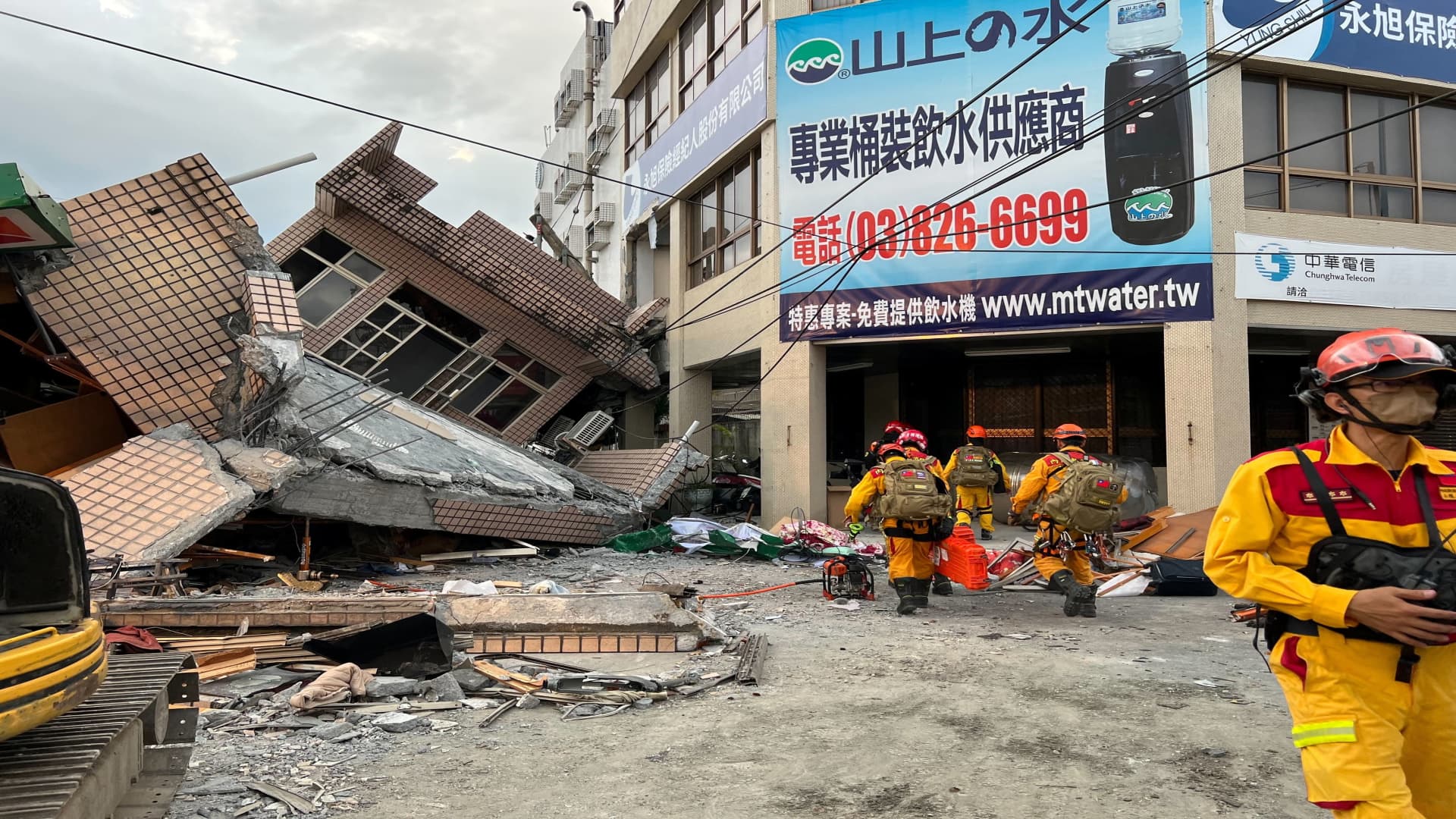Taiwan was struck by its most powerful earthquake on Wednesday, April 3rd, 2024 in almost a quarter of a century, causing significant damage to buildings and claiming the lives of at least four individuals. The earthquake, with a magnitude ranging from 7.2 to 7.5 as reported by different agencies like the U.S. Geological Survey, hit the entire island early on a Wednesday morning. The impact was severe, leading to the collapse of buildings in various areas, including a five-story building in Hualien that suffered substantial damage, leaving it leaning at a precarious 45-degree angle.
Impact on Infrastructure and Communities
The earthquake’s effects were felt across the island, with older buildings in Taipei experiencing tile falls, and newer office complexes also being affected. Train and subway services were suspended, disrupting the daily routines of the island’s 23 million residents. Despite the chaos caused by the quake, the resilience of the Taiwanese people was evident as life quickly resumed its normal course in the capital, with children going to school and the morning commute appearing unaffected.
Tsunami Alert and International Response
The earthquake triggered a tsunami alert, with waves detected on the coast of Yonaguni island in Japan, prompting the Japan Meteorological Agency to forecast a potential tsunami of up to 3 meters for the southern Japanese island group of Okinawa. The impact of the tsunami was closely monitored, with Japan’s Self Defense Force mobilizing to assess the situation and prepare shelters for potential evacuees.
Seismic Vulnerability and Preparedness
Taiwan’s location along the Pacific “Ring of Fire,” a region known for seismic activity, makes it particularly vulnerable to earthquakes. The country has a history of significant seismic events, with the 1999 earthquake causing extensive damage. The recent earthquake serves as a stark reminder of the importance of earthquake preparedness and infrastructure resilience in mitigating the impact of such natural disasters.
In conclusion, Taiwan’s strongest earthquake in nearly 25 years has left a trail of destruction, highlighting the need for continued vigilance, preparedness, and community resilience in the face of seismic threats. The loss of lives and damage to infrastructure underscore the importance of proactive measures to enhance earthquake resilience and ensure the safety of communities in the region.
The coming days will be crucial for Taiwan as it recovers from this earthquake. The focus will be on ensuring the safety of residents, providing medical care to the injured, and assessing the damage to infrastructure. The international community is expected to offer support and assistance to Taiwan during this challenging time.

